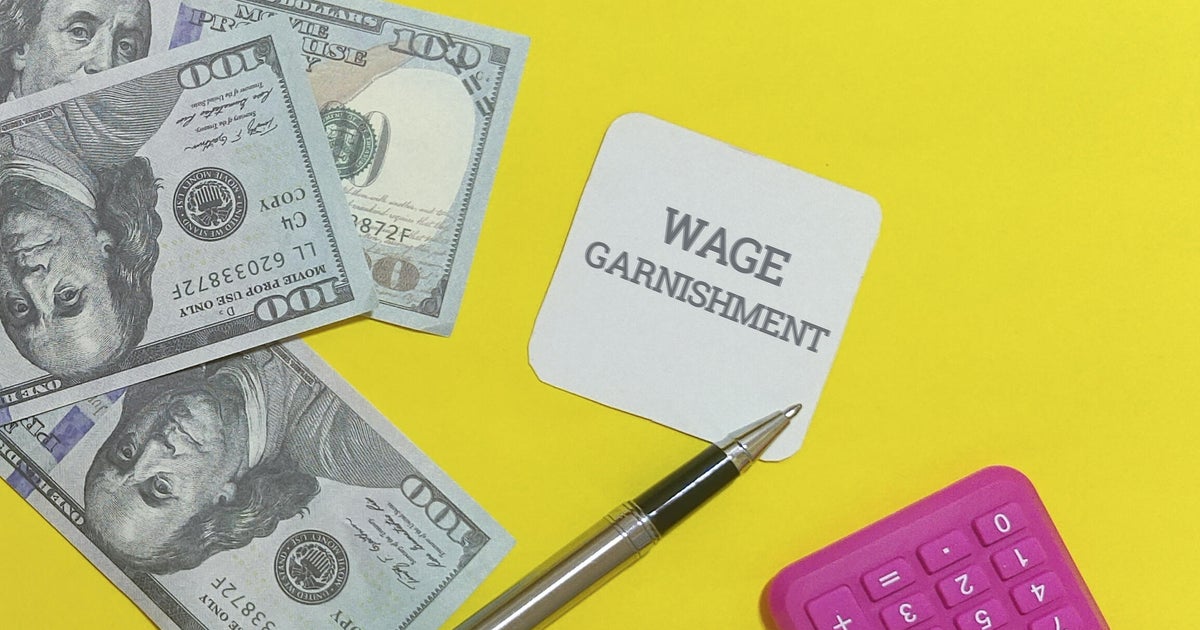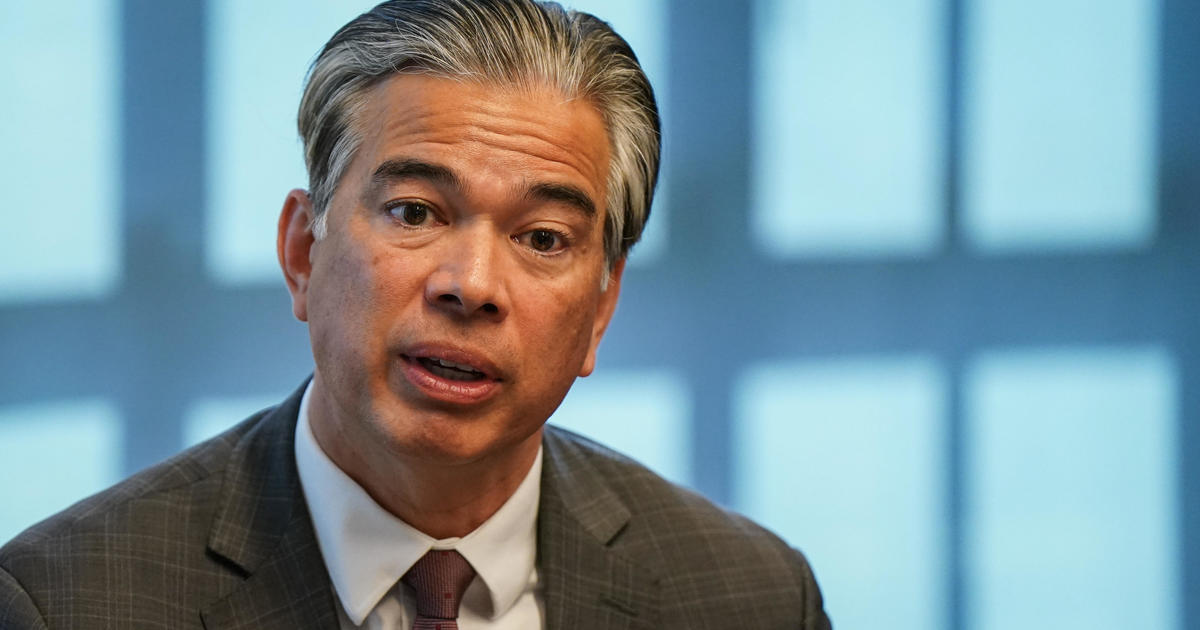Debt Debate Reverberates In State Governments
ANNAPOLIS, Md. (AP) -- Virginia's governor is livid that his famously tight-fisted state could face higher borrowing costs to build roads and schools. Maryland has put off a $718 million bond sale for three days because of the current financial uncertainty.
And California plans to borrow about $5 billion from private investors next week to ensure it can cover day-to-day operating expenses should the federal government default on its debt.
As President Barack Obama and congressional leaders struggle to reach a debt-limit deal, state government leaders are bracing for the impact on their budgets and economies of a threatened Aug. 2 federal government default.
This week, Moody's Investors Service warned that it probably will lower the credit rating on five states if it downgrades the U.S. government's credit rating. The firm concluded that Maryland Virginia, South Carolina, Tennessee and New Mexico would be most at risk.
"I'm very unhappy. In fact, we're furious," said Virginia Gov. Bob McDonnell. The Republican pointed out that the state's triple-A credit rating has been in place since 1938, and that it potentially could be lowered through no fault of the state's.
While state officials said the actual cost of a downgrade won't break the bank, they're not happy about the possibility of paying higher borrowing costs after years of budget cuts. They also worry about the economic impact of federal employees potentially not getting paid, or the government not going ahead with contracts or being able to make Medicaid payments.
"The problem is because it hasn't happened before, it's very hard to get a handle on what exactly the impact will be, and that lack of experience and clarity itself is very disturbing," Maryland Treasurer Nancy Kopp said.
Local officials are concerned too, and the looming crisis will be high on the list of topics when dozens of mayors meet in Los Angeles on Friday at the U.S. Conference of Mayors.
"We just feel like we're doing everything we can to get our financial house in order and yet macro forces in Washington primarily are causing us to basically spin our wheels, because even our best efforts are being undermined by indecision and uncertainty," said Mayor Scott Smith, of Mesa, Ariz.
Moody's has said there is a small but rising risk that the federal government will default on its debt, prompting the firm to place the U.S. government's triple-A credit rating under review. A U.S. rating downgrade would have a ripple effect on states. Moody's said any action on the states' ratings would come within 10 days.
Virginia's and Maryland's top credit ratings are at risk because they are home to large numbers of federal employees and their economies are tied to a lot of government contracts. The other states were placed under review for one or two of these factors, as well as high Medicaid spending and debt tied to variable interest rates.
Tennessee Gov. Bill Haslam, a Republican, said he wasn't too worried because he believes his state is in strong shape financially. "But that impact on our debt would cause some increased interest costs," he added. "So we're concerned about it, but not overly because of the financial condition we're in."
Other governors expressed outrage this week at the failure to reach a compromise in Washington. Talks are focused on a deal to allow the Treasury department to raise the debt ceiling in exchange for spending cuts and possibly tax increases.
"The bigger truth here is that no state is an island," Maryland Gov. Martin O'Malley, who is chairman of the Democratic Governors Association, said in a recent interview. "We're all part of the same country, and if we allow extremists in the Republican Party to drive the wealthiest country on the planet into a default on debt that's already incurred, then shame on us. There's no reason for this, and there's no state that will be shielded from this effect."
South Carolina Gov. Nikki Haley, a Republican, blamed the president. "President Obama needs to lead -- it's time for him to work with Congress to pass real, long-term spending cuts, and let our economy get moving," Haley said Wednesday.
Top ratings are gold standards for states when they issue bonds for everything from building roads and schools to, in South Carolina's case, industrial facilities such as the one Boeing Co. is using to assemble jets.
That top rating saves South Carolina some money when it borrows, but the number is not huge. The difference between the cost to borrow money for a top-rated state and one a notch below is small -- about 0.15 percent now. That would add about $75,000 to the annual interest payment tab on $50 million in bonds, or slightly more than $1 million over 15 years.
Moody's biggest concern in South Carolina was federal Medicaid payments. A reduction in those payments would blow a hole in South Carolina's budget. The state had a 10 percent unemployment rate in May, and has a poverty rate of 17 percent. The combination means about one in five South Carolina residents gets Medicaid benefits.
Linda Robinson, a 55-year-old health care worker in Columbia, S.C., worries that her patients will lose Medicaid benefits. "They won't get proper care, that's my concern," she said at a local Medicaid office Thursday. "Then they'll be shutting us down and health care workers will be out of work themselves."
In Virginia, a downgrade from the triple-A rating would be more a blow to the state's proud reputation for sound fiscal management than to its actual finances, said Manju Ganeriwala, the state treasurer.
"We've cut and we've budgeted conservatively, and to possibly have our bond rating downgraded for the first time?" she said.
Still, Ganeriwala said a downgrade would have little effect on the state's borrowing capacity or even the cost of borrowing given low interest rates.
In New Mexico, a downgrade by Moody's should have no immediate effect, according to finance officials there. New Mexico, like Maryland, only uses general obligation bonds to finance certain capital projects, and it doesn't use bonds to pay for any government operations.
Maryland's Kopp said it's hard to say how much a downgrade would cost Maryland in savings from getting the best possible borrowing rates, because it depends on how tight the market is. O'Malley said that if governments have to undertake fewer important projects, "it's a real blow to the jobs recovery."
But state officials are mindful of other potential impacts, too. Kopp wonders how default would affect federal funding for Medicaid, the state-federal program that provides health insurance for the poorest Americans.
"What happens when the hospitals don't get all of their funds to them? So there's that aspect of it, too," Kopp said. Federal workers can also expect to feel a pinch. "If there is a default or they don't reach an agreement, we're in jeopardy of not being paid," said John Gage, president of the American Federation of Government Employees. "If they do reach an agreement, we are going to take some very substantial hits to our pay, our retirement and possibly even our health benefits, and it is a morale disaster, I think, for federal workers and government workers all across the country."
Also sweating the outcome are states that borrow to pay operating costs. In California, the state typically borrows money in late summer to pay operating expenses until most income tax receipts arrive in the spring. But State Treasurer Bill Lockyer said Thursday he is seeking bids next week on $5 billion in private loans to help thestate avoid a cash shortage in case the impasse in Washington isn't broken.
The treasurer's office is taking the precaution because it's unclear whether California would be able to borrow that much money if global credit markets are thrown into turmoil.
(Copyright 2011 by The Associated Press. All Rights Reserved.)







